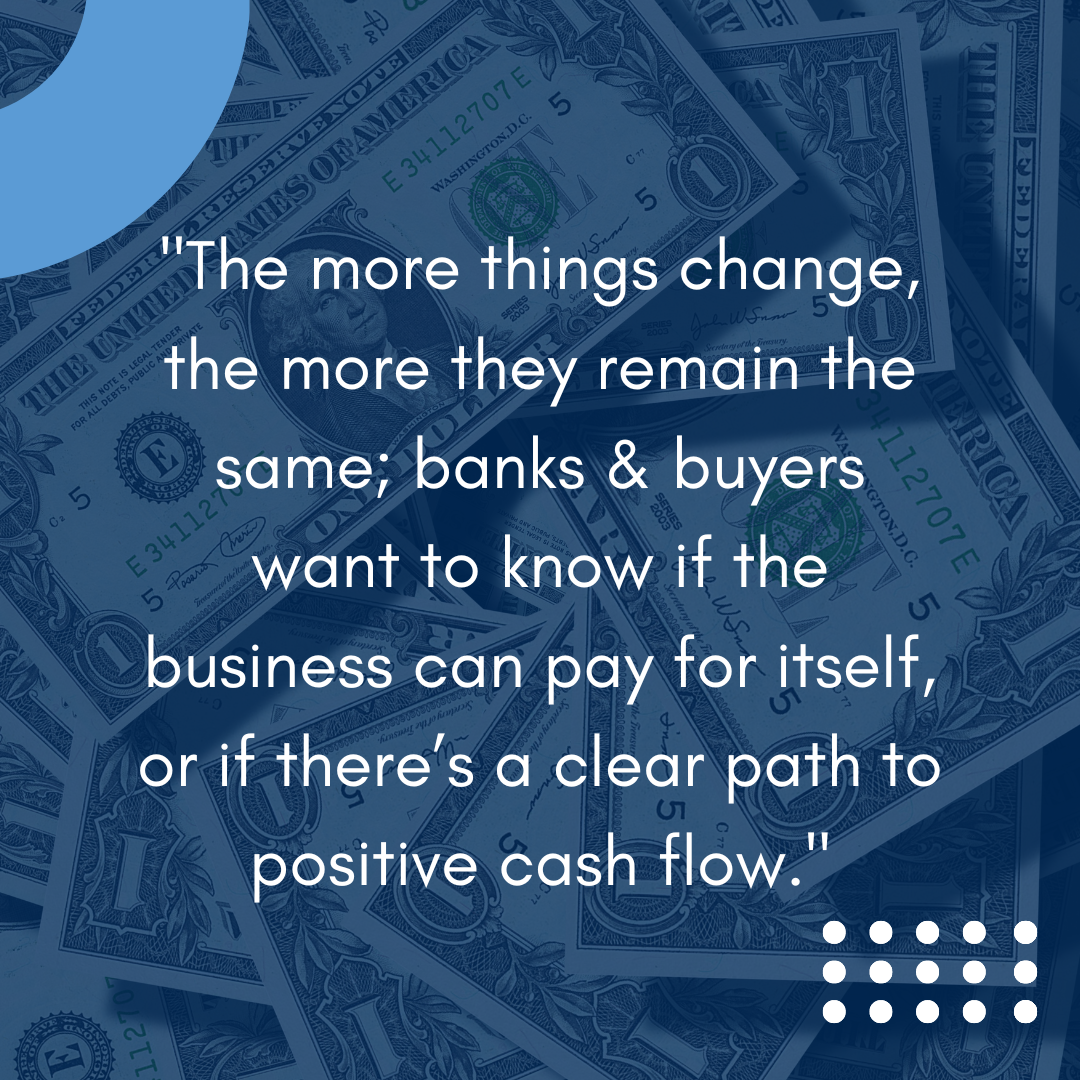 While there are a few approaches to determining the value of an existing business, they all hinge on the ability of a buyer to accurately predict the future cash flow created by the assets. In other words, nobody wants to work for free! Is a buyer going to be confident the business can pay them to do the work of ownership? Usually, this is demonstrated by stable & consistent historic performance.
While there are a few approaches to determining the value of an existing business, they all hinge on the ability of a buyer to accurately predict the future cash flow created by the assets. In other words, nobody wants to work for free! Is a buyer going to be confident the business can pay them to do the work of ownership? Usually, this is demonstrated by stable & consistent historic performance.
However, the last few years have been everything but stable & consistent. So how has COVID, shifting industries, changing banking practices, and an alphabet soup of grants & loans (EIDL, PPP, CDBG…) changed the landscape of determining a reasonable market value for your business?
The Narrative is More Important Than Ever
3-to-5 years of tax returns are no longer enough! Instead, how those years are weighted and what add-backs are acceptable depend heavily on a reasonable narrative – the story behind the numbers.
- Has the industry shifted – and has the business kept up?
- Has financial performance returned to pre-pandemic levels?
- Is the narrative clear and demonstrable enough to convince a buyer… and the Buyer’s lender?
Both buyers and their lenders are doing much more leg work around what a “normalized” cash flow will look like for the business going forward – which depends on a careful review of past revenue and expenses, and their explanations.
As Dana Myles, Regional VP & Commercial Lender at Norway Savings Bank put it, “We have been backing out the one-time COVID relief and the ERC because we want to see the operational cash flow. However, there have been some situations where we keep some of those funds in the calculations, especially when they paid more in payroll to qualify for full forgiveness of the PPP. There are a lot more in-depth conversations about the expense lines and what expenses were higher due to COVID-related expenses.”
Cash is King – Where is the Business Going?
This goes beyond historic performance; more and more lenders are emphasizing projected cash flow as well, and want the Buyer to explain their path forward. Does the Buyer understand their breakeven point? Are there risk mitigation plans in place? Is the Buyer able to actively improve the business?
Perceived Risk is Up – Driving Values Down
Even with a solid narrative, predictable future cash flow isn’t what it used to be. Buyers are keenly aware that COVID pulled the rug out from under a lot of seemingly-solid businesses. Moreover, interest rates are rising, which takes a chunk out of available cash flow – and banks look for SBA guarantees to reduce their risk, which adds fees to the Buyer.
Together, these factors are making it harder for Buyers to justify over-extending for an offer. This impact is multiplied for ‘high-risk’ businesses, such as restaurants, hospitality, or businesses with few tangible assets.
Sellers Are Remaining Involved
With commercial lender terms tightening, more Sellers are recognizing the importance of staying involved to get the value they want out of the sale. Sellers holding a secondary note in an unsecured position, staying on board as a contractor or employee to smooth the transition, or offering seller-friendly lease terms on the real estate are all options to bridge the gap between an agreed sale price and the Buyer’s ability to secure standard financing.
Value determination has always been a conversation between Buyer and Seller, but now more than ever, the playing field itself is a complicating factor that needs to be understood. If you’re considering selling your business, work closely with your team of professionals (an attorney, accountant, lender, or a business broker) who can help in preparing you to take that step. Some of the groundwork for establishing a high value can take place 3 – 5 years in advance of a transition – so don’t wait!
If you’re interested in starting your journey to sell your business – or buy one! – Maine SBDC Business Advisors are here to help, request advising today.
Written By Maine SBDC at Coastal Enterprises, INC. (CEI) Center Director and Business Advisor Raynor Large